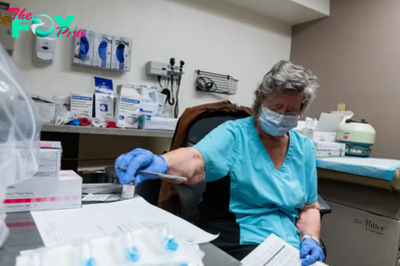Health
2 scientists snag Nobel in medicine for discovering 'microRNAs'
Two scientists have won the 2024 Nobel prize in physiology or medicine for their discovery of a class of tiny molecules called microRNAs, which play a crucial role in switching genes on and off.
Victor Ambros, a professor at the University of Massachusetts Medical School, and Gary Ruvkun, a molecular biologist at Massachusetts General Hospital and a professor of genetics at Harvard Medical School, will share the 11 million Swedish krona prize, equivalent to $1.06 million.
MicroRNAs fall under a broader umbrella of molecules called RNAs, which resemble DNA but contain only one "strand" of genetic material, rather than two twisted together. Ambros and Ruvkun first discovered microRNA and its potential role in gene regulation in 1993 while studying the development of the teensy roundworm Caenorhabditis elegans, a creature commonly studied by biologists.
Since then, the two collaborators and other scientists have shown that microRNAs are a key feature of the genomes of all multicellular organisms, including humans.
Related: Scientists just discovered a new way cells control their genes — it's called 'backtracking'
Thanks to their discovery, "researchers will have a much better understanding of how cells work," Olle Kämpe, the vice chair of the Nobel Committee for Physiology or Medicine, said at a press conference Monday (Oct. 7).
Currently, there are no medical applications for this work, but there may well be in the future, Kämpe said.
-

 Health2d ago
Health2d agoPeople Aren’t Sure About Having Kids. She Helps Them Decide
-

 Health2d ago
Health2d agoFYI: People Don’t Like When You Abbreviate Texts
-

 Health2d ago
Health2d agoKnee problems tend to flare up as you age – an orthopedic specialist explains available treatment options
-

 Health2d ago
Health2d agoThe second Trump presidency could mean big changes for health insurance in Colorado
-

 Health2d ago
Health2d agoIs It Time to Worry About Bird Flu?
-

 Health3d ago
Health3d agoJared Polis praises Trump for choosing anti-vaccine activist Robert F. Kennedy Jr. as health secretary
-

 Health3d ago
Health3d agoJohn Cena’s Workout Routine And Diet Plan: How The WWE Superstar Stays In Shape
-

 Health3d ago
Health3d agoSleep Doctors Share the 1 Tip That’s Changed Their Lives



























